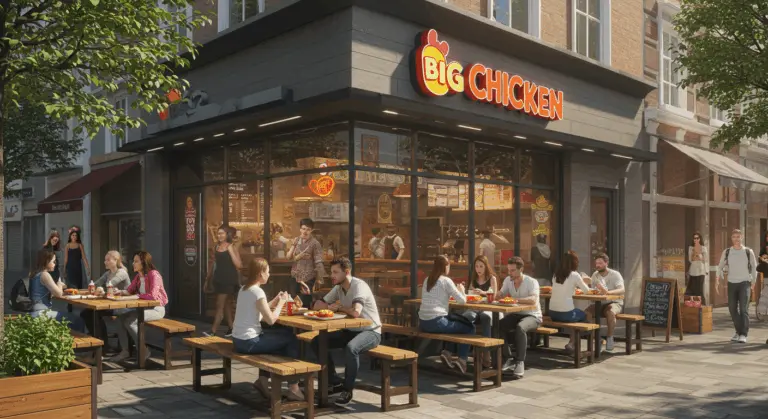Understanding Pizza Hut Franchise Cost – A Comprehensive Guide
Overview of Pizza Hut Franchise Costs
Investing in a Pizza Hut franchise represents a substantial business opportunity, though one that demands considerable financial commitment. The initial franchise fee stands at $25,000 for a comprehensive 20-year agreement, granting you the rights to operate under this globally recognized brand.
Your total initial investment will span from $297,000 to $2,109,000—a wide range influenced by critical factors such as location desirability, restaurant size, and whether you’re constructing from scratch or converting an existing space.
Pizza Hut franchises demonstrate solid competitive performance. A typical location generates an average annual revenue (UV) of $983,000, edging out the $970,000 industry benchmark for comparable businesses.
Initial Franchise Fee and Investment Breakdown
The $25,000 initial franchise fee—your license to use the established brand—remains competitively positioned against peers like Kona Ice ($15,000) and Chick-fil-A ($10,000).
Components of the Initial Investment
This substantial investment range reflects the comprehensive nature of launching your franchise, encompassing several critical areas:
Ongoing Fees for Pizza Hut Franchisees
Franchisees remit an ongoing royalty fee of 6% of gross sales to Pizza Hut’s parent company, Yum! Brands. This fee ensures continued access to the brand, proven systems, and operational support that supports growth.
Beyond royalties, franchisees contribute 3% to 4.25% of gross sales toward national marketing efforts. This investment fuels Pizza Hut’s nationwide advertising campaigns, digital marketing programs, and promotional activities that benefit all franchise locations. The exact percentage fluctuates based on specific franchise agreements and prevailing market conditions.
These non-negotiable fees—totaling 9% to 10.25% of gross sales—must be remitted to the franchisor before you even begin calculating your restaurant’s operating expenses.
Franchisees should also budget for other recurring expenses throughout the 20-year term, such as:
-
Periodic restaurant renovations
-
Technology upgrades
-
Additional staff training
Financial Requirements for Franchisees
Prospective franchisees must demonstrate a net worth between $700,000 and $1,000,000, providing Pizza Hut with confidence in your financial stability and long-term viability.
Additionally, you’ll need $250,000 to $500,000 in liquid assets—cash or readily convertible investments—to cover initial expenses and maintain adequate working capital during the crucial startup phase.
Pizza Hut requires franchisees to contribute a minimum of 20% equity toward the total project cost. However, financing options remain available for qualified candidates who meet the stringent criteria.
Financial qualifications represent just one piece of the puzzle. Pizza Hut scrutinizes candidates based on business acumen, management capabilities, and unwavering commitment to brand standards. Thoroughly reviewing the Franchise Disclosure Document (FDD) becomes essential to understanding every obligation you’ll face.
Profitability and Revenue Expectations
Industry analysts project that a well-managed Pizza Hut franchise can achieve an operating profit margin of approximately 15%. This translates to roughly $147,000 in annual EBITDA (Earnings Before Interest, Taxes, Depreciation, and Amortization)—though this figure varies significantly based on numerous variables.
Several key variables influence a location’s profitability:
-
Location Quality: Prime spots may have higher real estate costs but deliver stronger revenue.
-
Market Competition: The presence of other pizza chains and local restaurants affects pricing and market share.
-
Operational Efficiency: Effective management of labor, food costs, and utilities directly impacts profit margins.
Franchise Application Process and Training
Your journey begins with an initial inquiry form designed to evaluate basic qualifications, including contact information, professional background, and investment timeline.
Following this preliminary step, a franchise development representative will engage with you directly, discussing your specific interests and guiding you through the formal application process—which demands a comprehensive review of your financial position and business experience.
A key step occurs with your review of the Franchise Disclosure Document (FDD). Qualified candidates often receive invitations to meet face-to-face with Pizza Hut’s leadership team—a crucial step in the evaluation process.
Once approved, franchisees complete extensive training that covers all aspects of restaurant management. From food preparation and quality control to management strategies and customer service excellence—you’ll learn everything needed.
The final phases involve collaborating with Pizza Hut’s real estate specialists for optimal site selection, followed by coordinating with the operations team to ensure a smooth opening.
Pizza Hut offers two main franchise models—traditional and non-traditional—each with different investment and operational profiles.
| Feature | Traditional Locations | Non-Traditional Locations |
|—|—|—|
| Description | Standalone restaurants or units in shopping centers with a full menu and dining experience. | Smaller outlets within other facilities (e.g., airports, universities), focusing on delivery and carry out. |
| Investment | Higher end of the investment range ($297k – $2.1M) due to a larger footprint and equipment needs. | Lower end of the investment range due to smaller space and sometimes shared facilities. |
| Advantages | Full brand experience, higher potential sales volume. | Built-in customer traffic, lower overhead costs, simplified operations. |
| Challenges | Higher capital investment, greater operational complexity. | Potential limitations on menu, hours, and growth. |
Prospective franchisees should evaluate which model best aligns with their investment capacity and business goals, with guidance available from Pizza Hut’s development team.
Conclusion: Is a Pizza Hut Franchise Right for You?
A Pizza Hut franchise requires substantial investment—with initial investments ranging from $297,000 to $2,109,000, plus ongoing royalty and marketing fees consuming 9% to 10.25% of your gross sales.
From a financial standpoint, candidates require a minimum net worth of $700,000 and approximately $350,000 in liquid assets. These requirements ensure you can navigate startup costs while maintaining operational stability during challenging periods.
Financial resources alone don’t guarantee success. You’ll need exceptional management skills, an unwavering commitment to customer service, and the resilience to succeed in the competitive restaurant industry—all while adhering to established brand systems.
Pizza Hut provides the significant benefit of global brand recognition and an impressive average annual revenue of $983,000 per location. However, your individual results will depend heavily on your management prowess, location selection, and local market dynamics.
Making this choice requires careful research—speak with existing franchisees, scrutinize the FDD, and consult with financial and legal advisors. For the right entrepreneur, a Pizza Hut franchise provides an established route to business ownership with comprehensive support.






